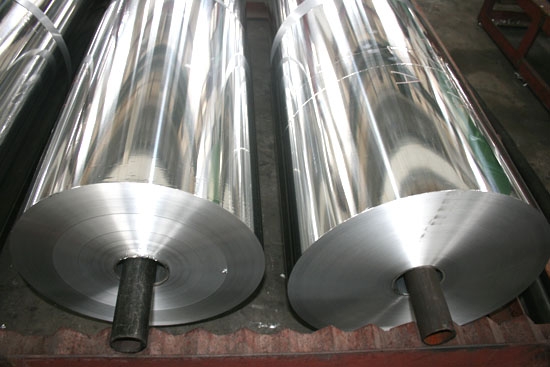探秘鋁板生產(chǎn)流程:從礦石到成品的華麗變身"
Exploring the Production Process of Aluminum Plate: A Gorgeous Transformation from Ore to Finished Product“
在當今社會�����,鋁板作為一種優(yōu)質(zhì)的金屬材料����,被廣泛應用于建筑����、航空、汽車制造等多個領(lǐng)域���。那么���,鋁板的生產(chǎn)流程究竟是怎樣的呢?今天����,就讓我們一起探訪鋁板的誕生過程,了解這一華麗變身的背后故事��。
In today's society, aluminum sheet, as a high-quality metal material, is widely used in various fields such as construction, aviation, and automotive manufacturing. So, what is the production process for aluminum plates? Today, let's explore the birth process of aluminum plates and understand the story behind this magnificent transformation.
一�����、礦石開采
1����、 Ore mining
鋁板的生產(chǎn)始于礦石的開采��。鋁土礦是一種含有大量氧化鋁的礦石����,是鋁板生產(chǎn)的基礎(chǔ)�。開采后的鋁土礦經(jīng)過破碎、磨細等工序后�,進行化學處理,提取出其中的氧化鋁�。
The production of aluminum plates began with the mining of ores. Bauxite is an ore containing a large amount of aluminum oxide, which is the foundation of aluminum plate production. After mining, the bauxite undergoes processes such as crushing and grinding, and undergoes chemical treatment to extract alumina from it.
二�����、氧化鋁提取
2�����、 Aluminum oxide extraction
提取出的氧化鋁經(jīng)過進一步的加工和提煉�,得到純凈的氧化鋁。這是鋁板生產(chǎn)的關(guān)鍵步驟之一���。
The extracted alumina is further processed and refined to obtain pure alumina. This is one of the key steps in aluminum plate production.
三��、熔煉
3��、 Melting
將純凈的氧化鋁與適量的冰晶石(一種氟化物)混合����,在高溫下熔融,形成鋁液��。此過程中需嚴格控制溫度和化學成分�����,以確保鋁液的純凈度和質(zhì)量���。
Mix pure alumina with an appropriate amount of cryolite (a fluoride) and melt at high temperature to form aluminum liquid. During this process, strict control of temperature and chemical composition is required to ensure the purity and quality of the aluminum liquid.

四��、鑄造
4�����、 Casting
將鋁液倒入模具中�,冷卻后形成鋁錠����。根據(jù)不同規(guī)格和用途,鋁錠可采用不同的鑄造方式,如重力鑄造����、壓力鑄造等。
Pour the aluminum liquid into the mold and cool it to form an aluminum ingot. According to different specifications and uses, aluminum ingots can be cast using different methods, such as gravity casting, pressure casting, etc.
五��、熱軋
5����、 Hot rolling
將鋁錠加熱至一定溫度后,送入熱軋機進行壓延�����。熱軋過程中需控制溫度���、速度和壓下量,以保證鋁板的厚度和力學性能����。
After heating the aluminum ingot to a certain temperature, it is sent to the hot rolling mill for rolling. During the hot rolling process, temperature, speed, and reduction need to be controlled to ensure the thickness and mechanical properties of the aluminum plate.
六、冷軋
6��、 Cold rolling
熱軋后的鋁板經(jīng)過冷卻和矯直后����,送入冷軋機進行進一步壓延��。冷軋過程中需對鋁板進行多次反復折疊和拉伸�,以獲得所需的厚度和形狀����。
After being cooled and straightened, the hot-rolled aluminum plate is sent to the cold rolling mill for further rolling. During the cold rolling process, aluminum sheets need to be repeatedly folded and stretched multiple times to obtain the required thickness and shape.
七、退火
7�、 Annealing
冷軋后的鋁板經(jīng)過退火處理,消除內(nèi)應力��,提高塑性和韌性�����。退火過程中需控制加熱速度�、溫度和冷卻速度,以保證鋁板的性能�����。
The cold rolled aluminum sheet undergoes annealing treatment to eliminate internal stress and improve plasticity and toughness. During the annealing process, it is necessary to control the heating rate, temperature, and cooling rate to ensure the performance of the aluminum plate.
八��、精整
8�����、 Finishing
退火后的鋁板經(jīng)過剪切、矯直����、表面處理等工序后,進行精整���。精整過程中需對鋁板的尺寸����、形狀��、表面質(zhì)量等進行嚴格檢查��,確保符合質(zhì)量要求����。
After annealing, the aluminum plate undergoes processes such as shearing, straightening, and surface treatment before undergoing finishing. During the finishing process, it is necessary to strictly inspect the size, shape, surface quality, etc. of the aluminum plate to ensure compliance with quality requirements.
九����、成品檢驗與包裝
9、 Finished product inspection and packaging
經(jīng)過質(zhì)量檢驗的鋁板被包裝成捆或裝入集裝箱�����,準備交付給客戶。成品檢驗過程中需對鋁板的化學成分�、力學性能等進行全面檢測,確保符合相關(guān)標準和客戶要求��。
The aluminum plates that have undergone quality inspection are packaged into bundles or loaded into containers, ready to be delivered to the customer. During the finished product inspection process, comprehensive testing of the chemical composition, mechanical properties, etc. of the aluminum plate is required to ensure compliance with relevant standards and customer requirements.

